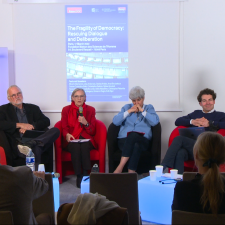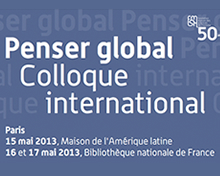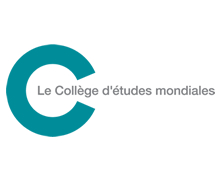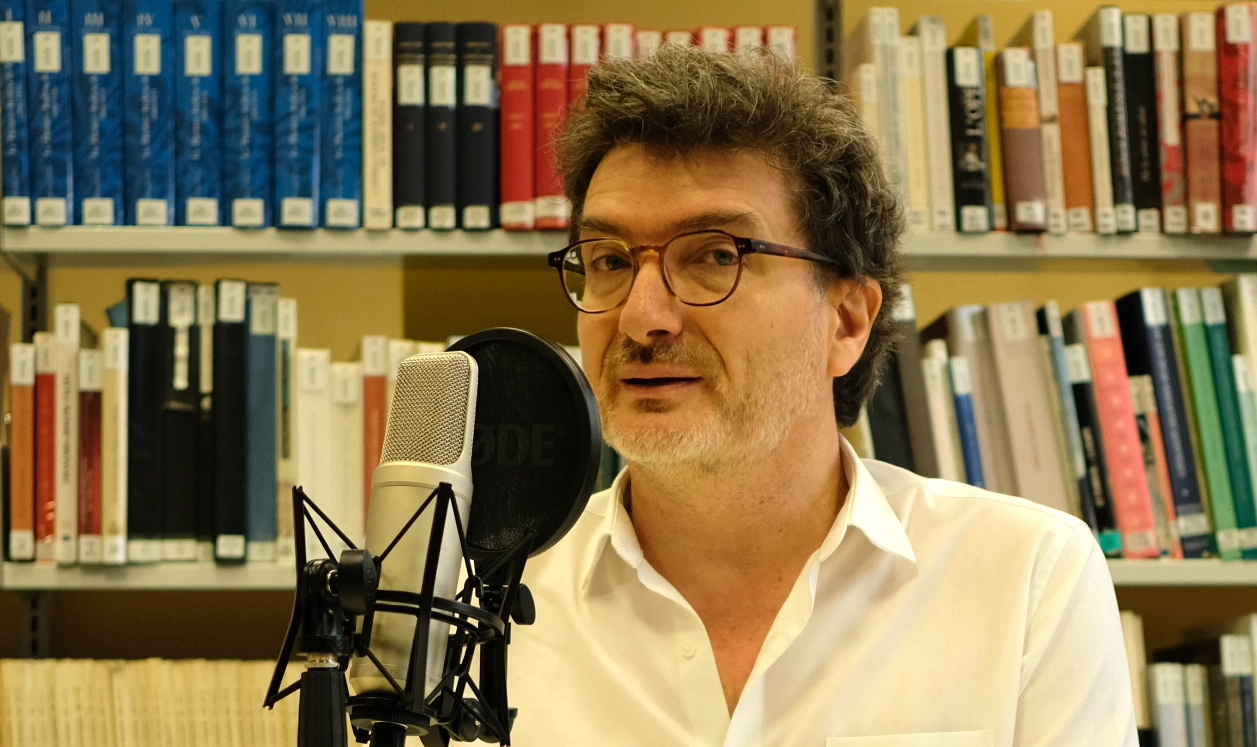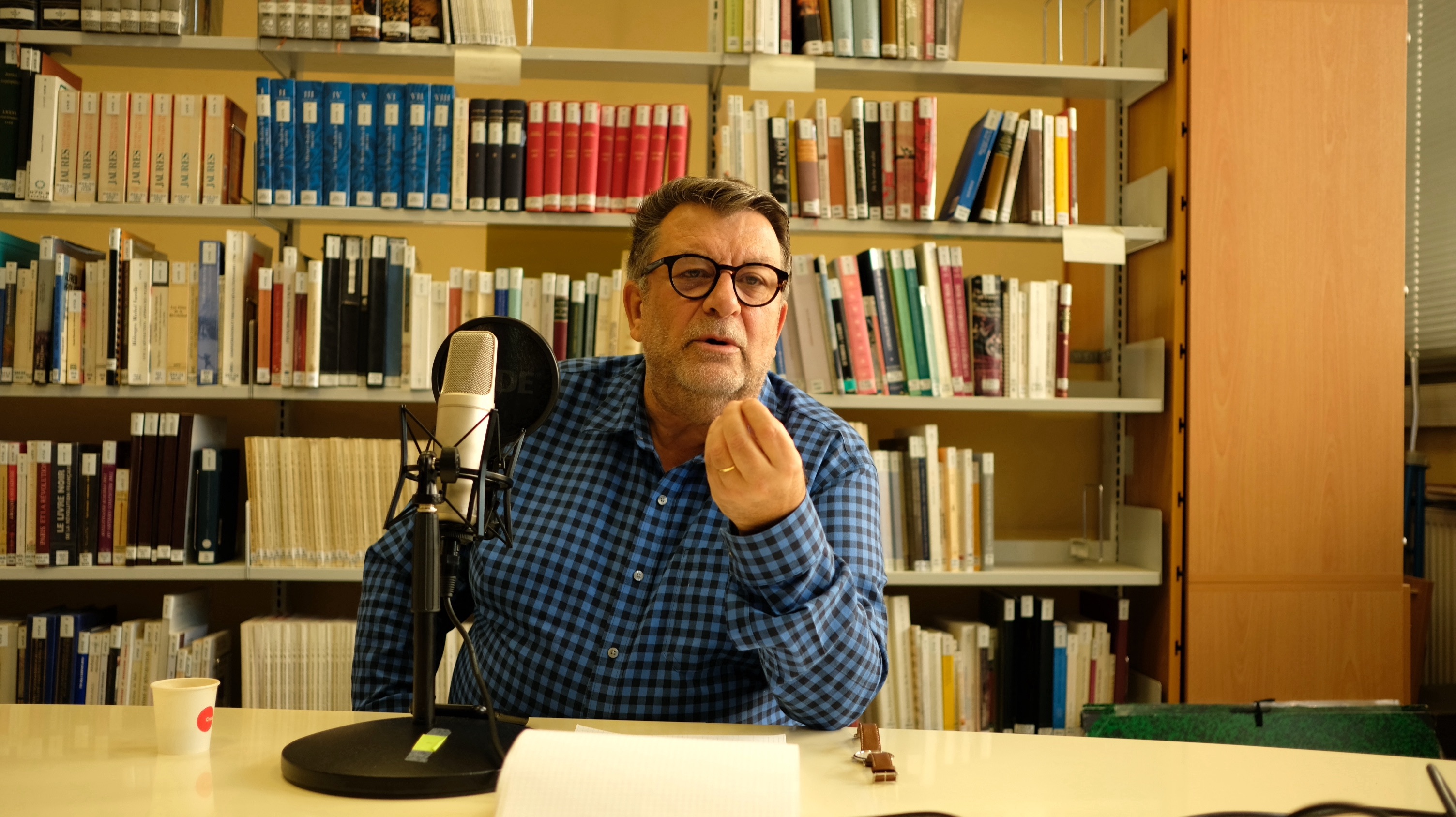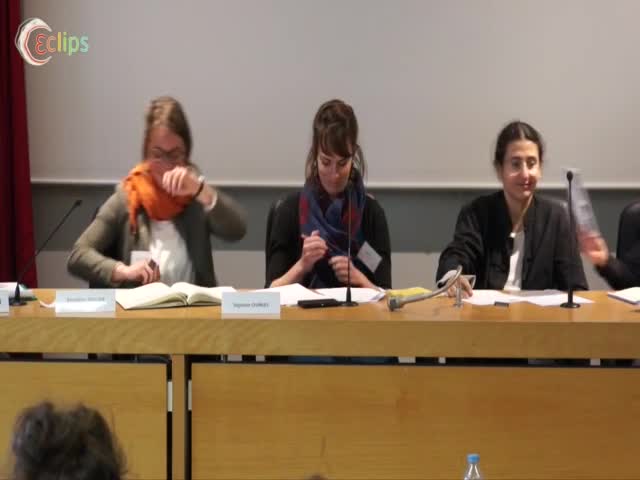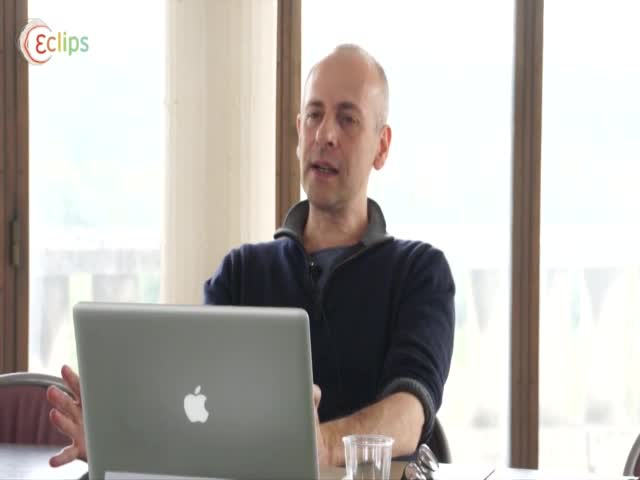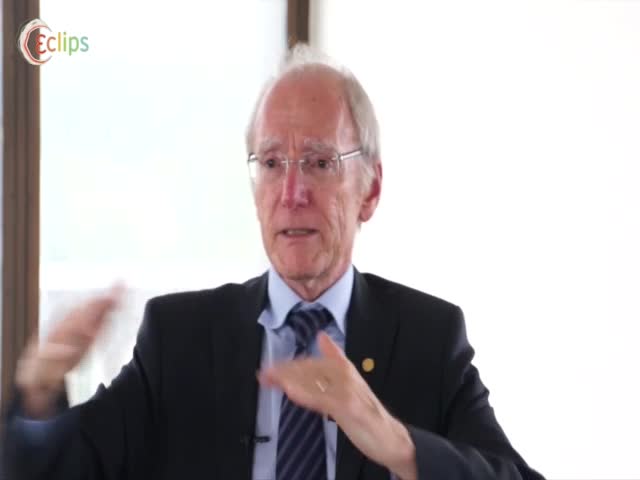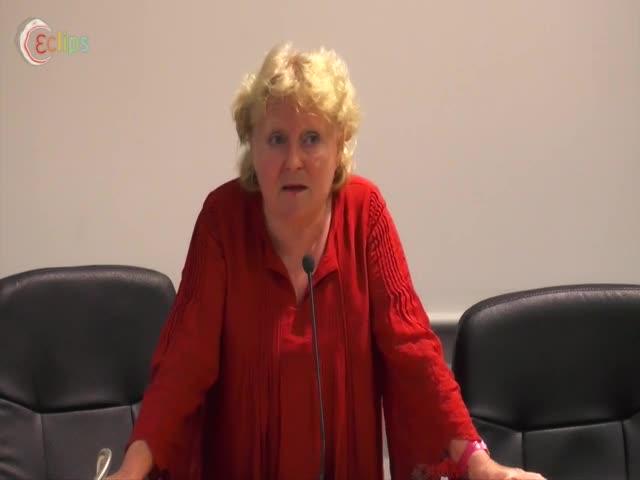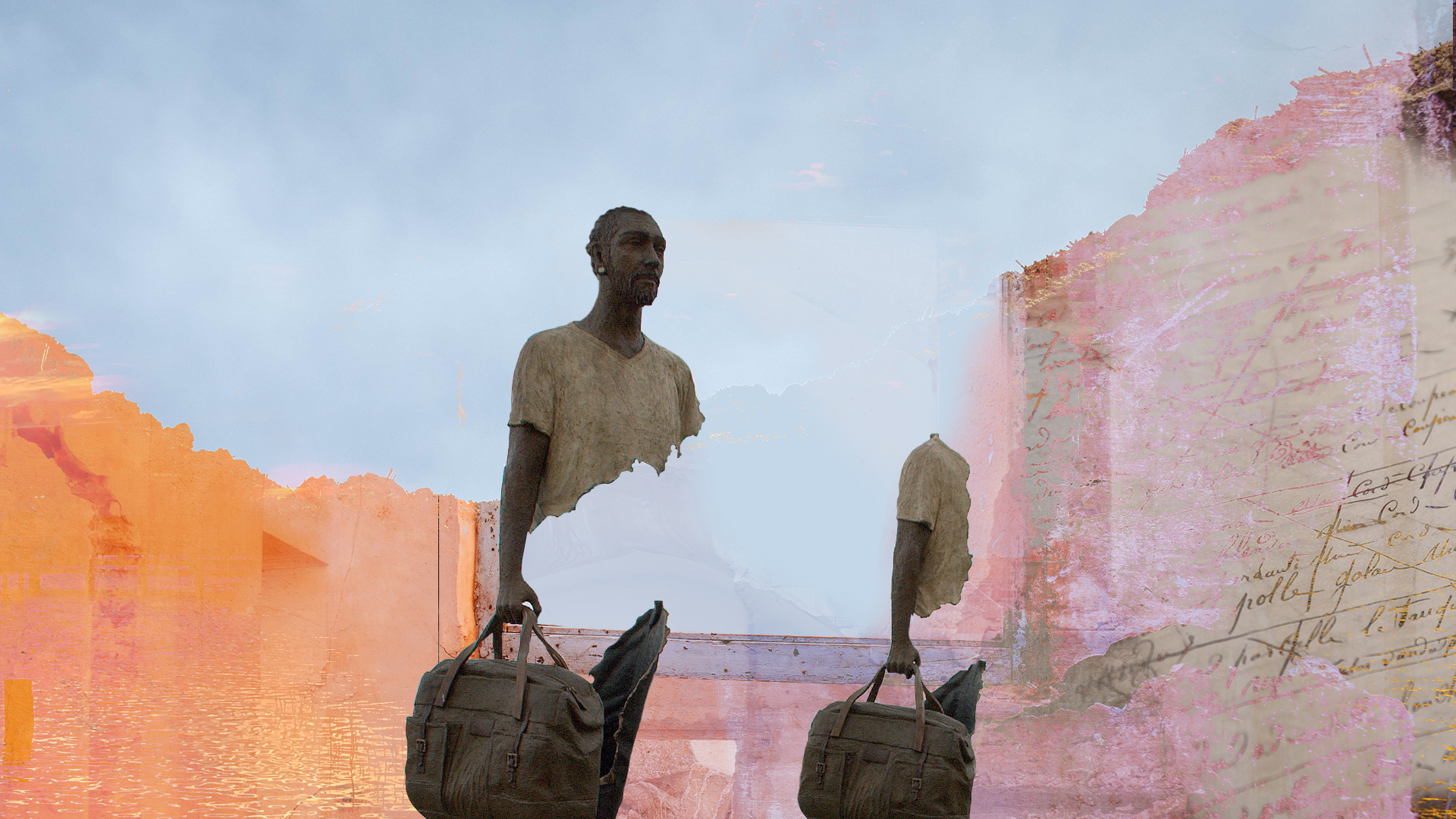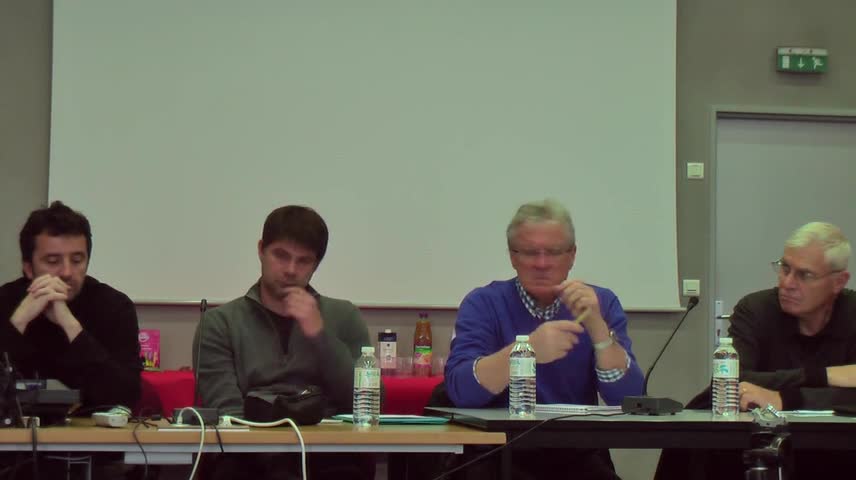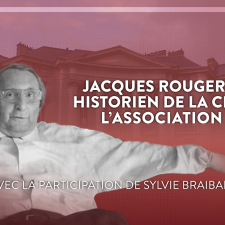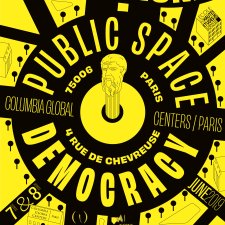Chapitres
- Main challenges01'44"
- Younger generations01'04"
- Turning point01'38"
Notice
Craig Calhoun's interview
- document 1 document 2 document 3
- niveau 1 niveau 2 niveau 3
Descriptif
Craig Calhoun's interview about the fragility of democracy.
Craig Calhoun is the University Professor of Social Sciences at Arizona State University.
Previously, Calhoun was Director of the London School of Economics and Political Science (LSE), President of the Social Science Research Council (SSRC), and President of the Berggruen Institute. He was also a professor at NYU (where he founded the Institute for Public Knowledge), Columbia University, and UNC-Chapel Hill (where he founded the University Center for International Studies and served as Dean of the Graduate School). He has also been a visiting professor in Asmara, Beijing, Bristol, Khartoum, Oslo, and Paris, and an Einstein Fellow in Berlin.
Intervention / Responsable scientifique
Thème
Documentation
TRANSCRIPTION
Today's democracies and indeed democracy in general are facing big challenges. Two kinds, in my opinion. From inside, we face deterioration in many of the institutional conditions for democracy, in the support systems for people's daily lives. So when you are losing your community, you are losing your job, you are confronting basic issues about the future of your children, you want immediate solutions. And if these are not available, then this generates distrust or cynicism or depression. All of these are challenges for democracy, because democracy needs citizens who are desiring to work together to solve problems, to meet challenges. And so inside, we have a kind of degeneration of democracy. We've lost a lot of the support systems. And as a result, we have polarisation, we have failure to take necessary action. But also, externally, the world has changed and democracies have to step up to this changed world. We know about climate change, and there are questions about whether democracies can effectively mobilise to meet the challenges of climate change. But also, war, with Russia's invasion of Ukraine and a reorganisation of the whole of political economy in the world creates constraints on democracies and new challenges, externally from authoritarian governments, but also from the economic and technical systems that organise so much of life that people don't feel they have a democratic choice. I am worried that many in the younger generation don't have the kind of foothold in the long term future in society that encourages democratic participation. So there are young people who are absolutely the leaders on almost every issue; climate change, as you suggest, but also in peace, in campaigns for environmental justice, for changing the economy, to be more supportive. So there's no question that young people are simply cynical, they are leading, but they are not convinced that the existing democratic institutions are actually working very well to meet these various goals. And so they are pushing us — I think, helpfully— to try to ask the hard questions about these institutions. But, some of them are also deciding, "well, it doesn't work, what can I do?" Yes. I don't want to say there is a silver lining that outweighs the absolute huge humanitarian disaster and the violation of the sovereignty of a democratic country. So this is a disaster, first. But, the West has unified more in response to the disaster than was expected and the West is the heartland of democracies, so this is helpful. Citizens in most of the Western democracies have joined in the demand that their governments do something. Now, there are qualifications to this. First, not all democracies are Western, and there are many that have abstained from efforts to limit the Russian aggression. Second, there is a kind of rush to think about this in old terms, like the Cold War, "we are the free world and there's the unfree world", and have this opposition. And even to think that maybe it would be good to have a war, "we should be sending more military to Russia", and all that. So I worry that there is a kind of surge of anti-Russian opinion that could be dangerous. But in addition, finally, I think the question is still before us whether this will be a moment for the rebuilding of democracy or just the reassertion of our identity.
Dans la même collection
-
Jonathan Laurence's interview
LaurenceJonathanJonathan Laurence's interview about the fragility of democracy
-
-
Annabelle Lever's interview
LeverAnnabelleAnnabelle Lever's interview about the fragility of democracy
-
-
Giancarlo Bosetti's interview
BosettiGiancarloGiancarlo Bosetti's interview about the fragility of democracy
-
Roundtable Restoring dialogue and deliberation in contemporary society
AlemannoAlbertoAndersonLisaCalhounCraig JacksonDeloireChristopheGoulardSylvieLaurenceJonathanLeverAnnabelleRoundtable organized by the FMSH, Reset Dialogues on civilizations and the Calouste Gulbenkian Foundation’s Delegation in France as part of the one-day conference The Fragility of Democracy: Rescuing
Avec les mêmes intervenants et intervenantes
-
Roundtable Restoring dialogue and deliberation in contemporary society
AlemannoAlbertoAndersonLisaCalhounCraig JacksonDeloireChristopheGoulardSylvieLaurenceJonathanLeverAnnabelleRoundtable organized by the FMSH, Reset Dialogues on civilizations and the Calouste Gulbenkian Foundation’s Delegation in France as part of the one-day conference The Fragility of Democracy: Rescuing
-
Justice et cosmopolitisme en question - VF
AndersonElijahFraserNancyCalhounCraig JacksonNowotnyHelgaColloque international PENSER GLOBAL Internationalisation et globalisation des sciences humaines et sociales À l’occasion de son 50e anniversaire, la Fondation Maison des sciences de l’homme invite
-
Justice et cosmopolitisme en question - VO
AndersonElijahFraserNancyCalhounCraig JacksonNowotnyHelgaColloque international PENSER GLOBAL Internationalisation et globalisation des sciences humaines et sociales À l’occasion de son 50e anniversaire, la Fondation Maison des sciences de l’homme invite
-
Entretien avec Ernesto OTTONE
WieviorkaMichelTubella CasadevallImmaCalhounCraig JacksonCastellsManuelN'GuyenVim-KinhOttone FernándezErnestoCette chaire envisage la mondialisation du point de vue d’une région qui en constitue, à bien des égards, un laboratoire : l’Amérique Latine. Il s’agit d’étudier les effets économiques, sociaux,
-
Entretien avec Manuel CASTELLS
WieviorkaMichelTubella CasadevallImmaCalhounCraig JacksonCastellsManuelN'GuyenVim-KinhOttone FernándezErnestoLe développement des nouvelles technologies de l’information et de nouvelles formes de médias de masse modifie profondément les rapports sociaux. Ces nouvelles formes de communication sont
-
Entretien avec Michel WIERVIORKA
WieviorkaMichelTubella CasadevallImmaCalhounCraig JacksonCastellsManuelN'GuyenVim-KinhOttone FernándezErnestoComme toute institution, avant d’avoir une histoire, le Collège d’études mondiales a une préhistoire. Celle-ci remonte au milieu des années 2000, et à mes conversations avec Alain Touraine. Nous
-
Entretien avec Graig CALHOUN
WieviorkaMichelTubella CasadevallImmaCalhounCraig JacksonCastellsManuelN'GuyenVim-KinhOttone FernándezErnestoPour affronter les grands bouleversements mondiaux à venir, qu’il s’agisse de l'économie globalisée, des nouveaux conflits politiques internationaux, des risques environnementaux, des grands
-
Entretien avec Vinh-Kim NGUYEN
WieviorkaMichelTubella CasadevallImmaCalhounCraig JacksonCastellsManuelN'GuyenVim-KinhOttone FernándezErnestoCette chaire interroge les rapports entre la biologie humaine et la mondialisation. Nécessairement interdisciplinaire, elle combinera ethnographie, histoire et socio-épidémiologie pour examiner l
-
Entretien avec Imma TUBELLA
WieviorkaMichelTubella CasadevallImmaCalhounCraig JacksonCastellsManuelN'GuyenVim-KinhOttone FernándezErnestoLes transformations économiques, politiques et technologiques ainsi que le développement et la diffusion accélérés du savoir dans tous les domaines de l'activité humaine, rendent de plus en plus
Sur le même thème
-
Pourquoi les nombres ont-ils contribué à l'émergence grecque de la démocratie ?
MacéArnaudArnaud Macé nous explique ce que la réforme de Clisthène à Athènes, acte fondateur de la démocratie, doit aux nombres.
-
Donald Trump et la Constitution : anatomie pathologique de la démocratie américaine
MichelotVincentVincent Michelot, professeur d’histoire politique des Etats-Unis à Sciences Po Lyon, pose une question essentielle : les Etats-Unis sont-ils en train de glisser vers la démocratie illibérale ?
-
Table ronde 2 "La dimension hybride et transversale des démarches démocratiques en architecture et …
MacaireÉliseLongeotLéaLe développement, depuis les années 90 en France, des conseils de quartiers, réunions de concertation ou autres assemblées consultatives, témoigne de la volonté des élus et des acteurs de la ville d
-
02 - "Les ambitions déçues de la démocratie urbaine dans les quartiers populaires"
KirszbaumThomasLe développement, depuis les années 90 en France, des conseils de quartiers, réunions de concertation ou autres assemblées consultatives, témoigne de la volonté des élus et des acteurs de la ville d
-
04 - Conférence "Ambitions et désillusions de la participation"
PontierJean-MarieLe développement, depuis les années 90 en France, des conseils de quartiers, réunions de concertation ou autres assemblées consultatives, témoigne de la volonté des élus et des acteurs de la ville d
-
03 - "Un regard sur les travaux du colloque pour réfléchir aux limites de la paticipation"
DenèfleSylvetteLe développement, depuis les années 90 en France, des conseils de quartiers, réunions de concertation ou autres assemblées consultatives, témoigne de la volonté des élus et des acteurs de la ville d
-
01 - Introduction au colloque "Expériences et limites d'un idéal de démocratie"
BressonSabrinaMozolPatrickLe développement, depuis les années 90 en France, des conseils de quartiers, réunions de concertation ou autres assemblées consultatives, témoigne de la volonté des élus et des acteurs de la ville d
-
MARIO SOARES L'EXIL D'UN DEMOCRATE PRO-EUROPEEN
VasconcelosÁlvaro deSoaresIsabelAraujoChristopheMartinsGuilherme d'OliveiraMorinEdgarLe 25 avril 2024 marquera le 50e anniversaire de la révolution des Œillets qui a mis fin à 48 ans de dictature et d'empire colonial, tout en déclenchant une vague démocratique en Europe et dans le
-
Introduction séminaire : "La participation des habitant(e)s : Limites, obstacles, insuffisances et …
BressonSabrinaECLIPS est un programme de recherche de l’université François-Rabelais de Tours (UMR CITERES et EA LERAP), financé par la Région Centre, qui réunit des chercheur-e-s en sociologie, droit et sciences
-
Philosophie politique et société démocratique
Cruz RevueltasJuan CristóbalJuan Cristobal Cruz, enseignant-chercheur au département de philosophie de l’université autonome de l’Etat de Morelos au Mexique, nous parle de philosophie politique et de la société démocratique
-
4. Jacques Rougerie et l'association
FayolleCarolineBraibantSylvieLors du quatrième temps de la journée d’étude sur l’historien Jacques Rougerie, Caroline Fayolle explore la manière dont la notion d’association se manifeste comme fil rouge dans les travaux de l
-
International colloquium on public space democracy
GöleNilüferOuzielPabloTuncelGökçeJunesTomDe SouzaPeter RonaldCarreraJuditDornhofSarahBéjaJean-PhilippeVegSebastianUngureanuCamilFadilNadiaWidrichMechtildTemir BeyleryanNazliBelchevaInaYıldızMisal AdnanTiniusJonasWangJingDaneshParandBenfodilMustaphaLhuissetÉmericGarcía SánchezPedro JoséЗнеполскиБоянPublicDemoS Project explores the ways in which Public Space allows the appearance of actors and manifestation of cultural differences.








